解析【纽约时报】推出的大学申请文书
时间:2019-11-17 10:52:43 热度:37.1℃ 作者:网络
【留美学子】 第1665期
【留美学子】前期发表
被名校录取的学生 不外乎这两种类型
在申请美国大学时,我们都知道除了硬件条件之外,课外活动、文书都特别重要,每年录取,都会有很多凭借一封文书就能脱颖而出的故事。但文书的主观性极强,我们单凭一封文书难以总结出可以用于帮助我们完成文书的技巧。
究竟要怎样才能写出富有深度且深受招生官喜爱的优秀文书呢?这篇文章将结合今年《纽约时报》挑选并刊登的4篇关于工作、金钱和阶级的美国大学优秀申请文书,每篇文章都有深入分析和建议。
希望这篇文章可以给大家的美本申请一些新的准备思路和角度。
1
标题:‘ The professors’ home was a telescope to how the other (more affluent) half lived
教授的家让我看到社会中的另一些人怎么生活
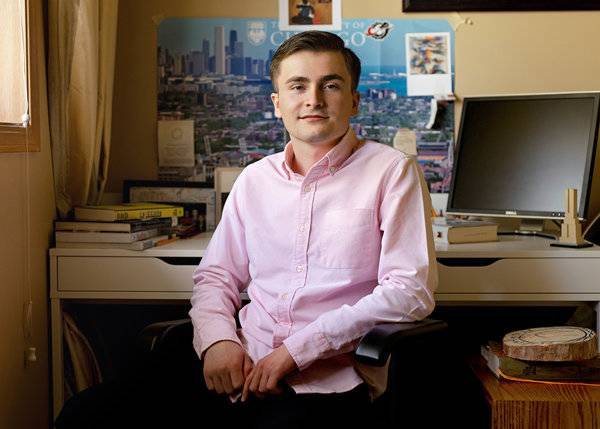
作者:Jonathan Ababiy
高中:Blaine High School
目标院校:The University of Minnesota
原文(中英对照)
At age 6, I remember the light filled openness of the house, how the whir of my mother’s vacuum floated from room to room. At 9, I remember how I used to lounge on the couch and watch Disney cartoons on the sideways refrigerator of a TV implanted in a small cave in the wall. At 12, I remember family photographs of the Spanish countryside hanging in every room. At 14, I remember vacuuming each foot of carpet in the massive house and folding pastel shirts fresh out of the dryer.
在我六岁的时候,我记得光洒满了整间屋子,也记得那时母亲那吸尘器的呼呼声是怎样在所有房间之间回荡。在我九岁时,我记得我经常懒洋洋的躺在睡椅上,看迪士尼卡通片,电视机有过道内的冰柜那么大,放在墙上的一个山洞大小的内嵌空间里。我还记得,12岁时,每一个房间都挂满了西班牙乡村度假的家庭照片。我也记得,14岁时,我在偌大的房子里一点点地给地毯除尘,折叠刚刚烘干的色彩柔和的衬衫。
I loved the house. I loved the way the windows soaked the house with light, a sort of bleach against any gloom. I loved how I could always find a book or magazine on any flat surface.
我爱这栋房子。我喜欢阳光透过窗户倾洒进来的样子,仿佛可以扫清所有愁云。我喜欢自己总是可以在任何一个平面上找到一本书或杂志。

But the vacuum my mother used wasn’t ours. We never paid for cable. The photographs weren’t of my family. The carpet I vacuumed I only saw once a week, and the pastel shirts I folded I never wore. The house wasn’t mine. My mother was only the cleaning lady, and I helped.
但是母亲用的那台吸尘器并不是我们的。我们也从来没有付过有线电视费。照片拍的也不是我们家。我一周只能见到一次自己清理的地毯,我从未穿过自己折叠的色彩柔和的衬衫。那栋房子不是我们的。我母亲只是清洁工,而我时不时会帮忙。
My mother and father had come as refugees almost twenty years ago from the country of Moldova. My mother worked numerous odd jobs, but once I was born she decided she needed to do something different. She put an ad in the paper advertising house cleaning, and a couple, both professors, answered. They became her first client, and their house became the bedrock of our sustenance. Economic recessions came and went, but my mother returned every Monday, Friday and occasional Sunday.
在大约20年前,我父母以难民的身份从家乡摩尔多瓦来到美国。我母亲做着大量的零工,但是我一出生,她认为自己需要做些不一样的工作。她在报纸上刊登了一份提供房屋保洁服务的广告,然后一对教授夫妻联系了我们。他们是母亲的第一个客户,他们的房子也成为了我们生存来源的基础。经济衰退来了又去,但我母亲每逢周一和周五都要回到那里,有时周日也过去。
She spends her days in teal latex gloves, guiding a blue Hoover vacuum over what seems like miles of carpet. All the mirrors she’s cleaned could probably stack up to be a minor Philip Johnson skyscraper. This isn’t new for her. The vacuums and the gloves might be, but the work isn’t. In Moldova, her family grew gherkins and tomatoes. She spent countless hours kneeling in the dirt, growing her vegetables with the care that professors advise their protégés, with kindness and proactivity. Today, the fruits of her labor have been replaced with the suction of her vacuum.
她整日戴着天青色的乳胶手套,操着蓝色的胡佛(Hoover)吸尘器,给仿佛有几英里长的地毯除尘。她擦过的所有镜子没准可以堆叠成那种由菲利普·约翰逊(Philip Johnson)打造的亮闪闪的摩天大楼。对她来说这并不新鲜。吸尘器和手套对她来说或许很新奇,但这份工作却绝非如此。在摩尔多瓦,她的家族种植黄瓜和西红柿。她花无数个小时跪在泥土里,以教授指导学生的用心程度、以仁慈和积极主动的态度侍弄她的蔬菜。现在,她劳作的蔬果被吸尘器取而代之。
The professors’ home was a telescope to how the other (more affluent) half lived. They were rarely ever home, so I saw their remnants: the lightly crinkled New York Times sprawled on the kitchen table, the overturned, half-opened books in their overflowing personal library, the TV consistently left on the National Geographic channel. I took these remnants as a celebrity-endorsed path to prosperity. I began to check out books from the school library and started reading the news religiously.
教授的房子是我窥视这个社会中另一部分人是如何生活的窗口。他们几乎不在家,所以我能看见他们生活的痕迹:厨房餐桌上摊着略微皱起的纽约时报,在他们满当当的私人图书馆里覆在地面上半合半开的书籍,一直停留在国家地理频道的电视机。我把这些痕迹当做有名人代言的通往富足之路。我开始从学校图书馆翻阅书籍,也开始虔诚的收看新闻。
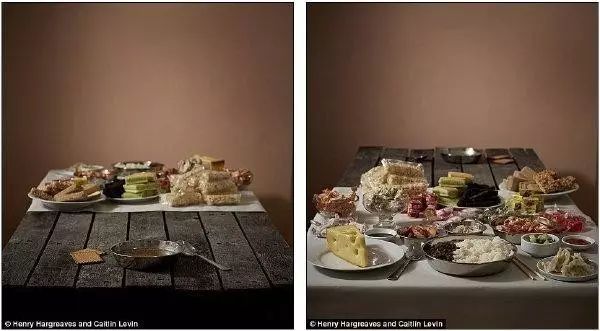
Their home was a sanctuary for my dreams. It was there I, as a glasses-wearing computer nerd, read about a mythical place called Silicon Valley in Bloomberg Businessweek magazines. It was there, as a son of immigrants, that I read about a young senator named Barack Obama, the child of an immigrant, aspiring to be the president of the United States. The life that I saw through their home showed me that an immigrant could succeed in America, too. Work could be done with one’s hands and with one’s mind. It impressed on me a sort of social capital that I knew could be used in America. The professors left me the elements to their own success, and all my life I’ve been trying to make my own reaction.
他们的房子是我做梦的庇护所。就是在那儿,作为一个戴着眼镜的电脑怪咖的我,在《彭博商业周刊》看到了一个神奇的名叫硅谷的地方。就是在那儿,作为一个移民之子的我,看到了一位也是移民后代,名叫巴拉克奥巴马的年轻议员居然梦想成为美国总统。我通过这栋房子看到的生活告诉我,一个移民也可以在美国获得成功。工作靠努力和智慧就能办到。它让我对一种社会资本有了深刻的概念,我知道在美国可以使用这种资本。两位教授让我看到了他们取得成功的要素,我这一生都在试图做出自己的反应。
Ultimately, the suction of the vacuum is what sustains my family. The squeal of her vacuum reminds me why I have the opportunity to drive my squealing car to school. I am where I am today because my mom put an enormous amount of labor into the formula of the American Dream. It’s her blue Hoover vacuums that hold up the framework of my life. Someday, I hope my diploma can hold up the framework of hers.
最后,吸尘器的吸力支撑起了我的家庭。吸尘器的声响提醒我,为什么有机会能够开着我咔咔作响的汽车去学校。我之所以成为今天的我,是因为我的母亲付出了大量的劳动投入进了美国梦的方程式中。是她的蓝色胡佛吸尘器支撑了我生活的架构。某天,我希望我的学识也能够支撑起她的生活。
点评
从一开始,Jonathan的写作风格就会让你提出更多的问题:起初,他似乎在形象地描述自己的家。当你意识到他是在谈论他母亲为生计而打扫的房子时,这种叙述的转变会非常有力: 它会挑战你作为一名读者的设想。
更重要的是,这并不是一个简单的白手起家或者战胜逆境的故事: 作为一个移民的儿子,他设法应对困难的情况,对阶级差异作出了更大的评论。他对语言的运用,以及他对自身阶级地位的哲学性反思,将这篇文章的立意从“我很贫穷” 提高到了 “我与众不同的经历成就了现在的我”。他通过展示他如何受益于在这些教授家中的经历而进一步加强了这层联系。
不过,应该说Jonathan的文章很棘手。找到一篇可怜的孩子在父母的刻苦努力下克服困难的文章很容易;除了他追随他努力工作的母亲,这篇文章主要的缺点是他并没有展示出很多他自己的个性。他可以通过更多地提及他所描述的经历对他作为一个人的影响,对他行为的改变,而不是仅仅描述他从中获得的灵感来进一步改善他的文章。
2
标题:Slowly,my mother's gingham apron began to look more likemetal armor
慢慢地,我母亲的格子围裙看起来像是金属盔甲

作者:Caitlin McCormick
高中:The Gregory School
目标院校:Barnard College
原文(中英对照)
When it comes to service workers, as a society we completely disregard the manners instilled in us as toddlers.
当我们提到服务人员的时候,作为一个社会人,我们完全抛弃了年幼时被灌输的礼仪。
For seventeen years, I have awoken to those workers, to clinking silverware rolled in cloth and porcelain plates removed from the oven in preparation for breakfast service. I memorized the geometry of place mats slid on metal trays, coffee cups turned downward, dirtied cloth napkins disposed on dining tables.
17年来,我一醒来就会注意到这样的服务人员,注意到准备供应早餐期间裹在餐布里的叮当作响的餐具,以及从烤箱中取出的瓷盘。我会记得餐具垫被放在金属托盘里的形状、咖啡杯被倒扣以及弄脏了的布餐巾被撂在餐桌上的样子。
I knew never to wear pajamas outside in the public courtyard, and years of shushing from my mother informed me not to speak loudly in front of a guest room window. I grew up in the swaddled cacophony of morning chatter between tourists, professors, and videographers. I grew up conditioned in excessive politeness, fitted for making small talk with strangers.
我知道永远不要穿着睡衣走到外边的公共庭院里;我母亲年复一年发出的嘘声让我明白,不能在客房的窗前大声说话。我成长于游客、教授和摄像师晨间压低声音闲聊的嘈杂声中。在长大成人的过程中,我习惯了那种适用于与陌生人寒暄的过度礼貌。
I grew up in a bed and breakfast, in the sticky thickness of the hospitality industry. And for a very long time I hated it.
我是在一个提供住宿和早餐的客栈里,在有着厚重的酒店业氛围的环境里长大的。有很长一段时间我对此颇为憎恶。

I was late to my own fifth birthday party in the park because a guest arrived five hours late without apology. Following a weeklong stay in which someone specially requested her room be cleaned twice a day, not once did she leave a tip for housekeeping. Small-business scammers came for a stop at the inn several times. Guests stained sheets, clogged toilets, locked themselves out of their rooms, and then demanded a discount.
就因为一位客人不怀歉意地迟到了5个小时,我参加自己在花园举办的15岁生日派对也晚到了。某个人住店一周,专门要求其房间每天打扫两次,却没有留过一次整理房间的小费。诈骗小企业的人光顾过几回。客人把床单弄脏,把厕所弄堵,把自己锁在房间外,然后要求打折。
There exists between service workers and their customers an inherent imbalance of power:We meet sneers with apologies. At the end of their meal, or stay, or drink, we let patrons determine how much effort their server put into their job.
服务业从业者和客人之间存在天然的权力失衡:我们用道歉应对冷嘲热讽。我们让顾客在他们吃喝住宿之后自行决定,服务人员在提供服务上有多用心。
For most of my life I believed my parents were intense masochists for devoting their existences to the least thankful business I know: the very business that taught me how to discern imbalances of power. Soon I recognized this stem of injustice in all sorts of everyday interactions. I came to understand how latent racism, sexism, classism and ableism structure our society — how tipping was only a synonym for “microaggression.”
在生命的大部分时间里,我都觉得我父母是极端的受虐狂,他们把自己的一生献给了我所知的最不讨好的行当:即教会我如何辨别权力失衡的行当。很快,我就在各种日常交往中注意到这种不公平。我开始明白,潜在的种族主义、性别歧视、阶级歧视和残障歧视如何充斥我们的社会——给小费如何只是“微歧视”的一个同义词。
I became passionate.Sometimes enraged. I stumbled upon nonprofits, foundations, and political campaigns. I canvassed for Senate candidates, phone-banked for grass-roots action groups, served as a board member for the Women’s Foundation of Southern Arizona, reviewed grant applications for nonprofits and organized events for the nearby children’s hospital.
我变得狂热起来。有时还很愤怒。因为偶然的机缘,我加入了非营利组织、基金会和政治运动。我给参议员候选人拉票,给草根行动团体接听电话,担任南亚利桑那州女性基金会(Women’s Foundation of Southern Arizona)的董事会成员,审核非营利组织的经费申请,还为附近的儿童医院组织活动。
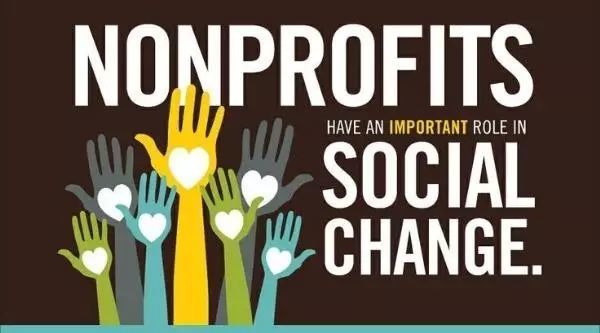
I devoted my time to the raw grit of helping people, and in the process I fell irrevocably in love with a new type of service: public service. At the same time, I worked midnight Black Friday retail shifts and scraped vomit off linoleum. When I brought home my first W-2, I had never seen my parents so proud.
我把自己的时间投入到帮助别人的历练之中,在这个过程中,我义无反顾地爱上了一种新型的服务:公共服务。与此同时,我也做着黑色星期五的夜班零售工作,清理油毡毯上的呕吐物。当我把自己的第一份工资单拿回家时,从没见父母那么自豪过。
The truth, I recently learned, was that not all service is created equal. Seeing guests scream at my parents over a late airport taxi still sickens me even as I spend hours a week as a volunteer. But I was taught all work is noble, especially the work we do for others.Slowly, my mother’s gingham apron began to look more like metal armor. I learned how to worship my parents’ gift for attentive listening, easily hearing the things guests were incapable of asking for — not sugar with their tea, but somebody to talk with while they waited for a conference call. I envied their ability to wear the role of self-assured host like a second skin, capable of tolerating any type of cruelty with a smile.
我最近发现的事实是,并非所有的服务都是天生平等的。看到客人因为接机出租车迟到而对我的父母大叫大嚷,仍然让我感到厌恶,尽管我每周也会花数小时时间做志愿者。但我从中学到的是,所有的工作都是高贵的,尤其是我们为他人做的工作。慢慢地,我母亲的格子布围裙看起来也更像金属盔甲了。我知道了如何欣赏父母细心倾听的天赋,他们很容易就能明白客人没有准确提出的要求——不是给他们的茶里加糖,而是在他们等待一个电话会议时能有人跟他们聊天。我羡慕他们能那么自然地扮演胸有成竹的东道主角色,能带着微笑忍受各种恶言。
Most of all, I admired my parents’ continuous trust in humanity to not abuse their help. I realized that learning to serve people looks a lot like learning to trust them.
最重要的是,我钦佩父母一直相信人性,相信人们不会对不起他们提供的帮助。我意识到,学习给人们提供服务和学会相信他们极其相似。
点评
在Caitlin的文章中,她通过敏感的细节描写叙述了她在酒店服务客人时所遇到的困难,以及她的父母有时不得不忍受的虐待,从而将她自己置于故事的中心。她强调 “工作是高尚的” 的主题,并且使用她母亲的围裙变成盔甲的隐喻来进一步强调她的观点。
我认为她文章真正成功的地方在于她对体系中的不平等、种族歧视、性别歧视和其他社会问题的描述和认识。她不仅展现出她对这些问题做了功课,而且还把这些问题与自己的生活联系起来,接着描述了她是如何成为一名志愿者、公共服务人员和积极分子来反抗这些问题的。虽然目前这些话题颇为盛行,但是她做得很好,非常有说服力。
矛盾的是,我认为这篇文章成也萧何,败也萧何:她过于强调她父母在业务成长过程中所遇到的负面经历,似乎每一个他们遇到的客人都是糟糕的。诚然,这似乎是一个她为了凸显她后来提出的不平等问题而精心编制的亮点。但是,将她圣贤像的父母和一群糟糕的人放在一起对比似乎有些不和谐。我通常建议学生不要过多地提及他们的父母,因为那样的文章通常会变成一个关于父母的故事,而不是一个关于学生的故事。
3
标题:My Dell hid my privilege and my Mac hid my financial need
戴尔 or MAC,特权和需求的斗争

作者:Zöe Sottile
高中:Phillips Academy Andover
目标院校:Columbia University
原文(中英对照)
The most exciting part was the laptop.
最让人兴奋的部分是那台笔记本电脑。
My mom grabbed the thick envelope out of my hands and read off the amenities associated with the Tang Scholarship to Phillips Academy: full tuition for all four years, a free summer trip, $20 a week for me to spend on all the Cheetos and nail polish my heart desired, and finally, a free laptop.
母亲从我手上夺过那个厚厚的信奉,念出菲利普斯学院唐氏奖学金能给我带来的好处:整整四年的学费,一次免费夏季旅行,每周给我20美元,让我可以买我想要的奇多和指甲油,还有,一台免费的笔记本电脑。
I had never had a computer of my own before, and to me the prospect symbolized a world of new possibilities. I was the only student from my public middle school I knew to ever go to an elite boarding school, and it felt like being invited into a selective club. My first week at Andover, dazed by its glamour and newness, I fought my way to the financial aid office to pick up the laptop; I sent my mom a photo of me grinning and clutching the cardboard box. Back in my dorm room, I pulled out my prize, a heavy but functional Dell, and marveled at its sleek edges, its astonishing speed.
之前我从来没有拥有过属于自己的电脑,对我来说,这象征着一个充满全新可能性的世界。据我所知,我是我那个公立中学唯一一个去精英寄宿学校上学的学生,这感觉像是受到一个精英俱乐部的邀请。我在安多佛的第一个星期,它的光芒和新奇使我觉得眼花缭乱,我好不容易找到经济资助办公室领到了我的笔记本电脑;我还发给我妈一张拿着纸箱咧嘴大笑的照片。回到我的宿舍,我取出我的奖励,一台很重但有许多功能的戴尔,并惊叹于它光滑的线条和惊人的处理速度。
But the love story of my laptop came clamoring to a halt.In the library, as I stumbled to negotiate a space to fit in, I watched my friends each pull out a MacBook. Each was paper-thin and seemingly weightless. And mine, heavy enough to hurt my back and constantly sighing like a tired dog, was distinctly out of place. My laptop, which I had thought was my ticket to the elite world of Andover, actually gave me away as the outsider I was.
但是我对戴尔的爱却戛然而止。在图书馆,当我笨拙地想找个地方坐下来,我看到我的每个朋友都拿出了一台MacBook。每一个都薄如纸片,看起来十分轻盈。而我的戴尔呢,立刻显得格格不入起来,重的好似能拖垮我的背,还像一只累坏的狗那样不停发出声响。本来我以为这台戴尔是我通向安多佛精英世界的入场券,但实际上却暴露了我外来者的事实。

For a long time, this was the crux of my Andover experience:always an outsider. When I hung out with wealthier friends, I was disoriented by how different their lives were from mine. While they spent summers in Prague or Paris, I spent mine mining the constellation of thrift stores around New Haven. The gap between full-scholarship and full-pay felt insurmountable.
很长一段时间内,这一直是我在安多佛体验中的一大难题:总是作为一个局外人。当我和比我有钱的朋友出去闲逛,我都能看到他们的生活和我的生活有多不同,这让我感觉不知所措。当他们整个暑假都在布拉格或者巴黎度假时,我在纽黑文附近的众多二手商店淘着旧货。全额奖学金和全自费之间的差距感觉无法跨越。
But I also felt like an outsider going to meetings for the full-scholarship affinity group. My parents attended college and grew up wealthier than I did, giving me cultural capital many of my full-scholarship friends never had access to. Moreover, I’m white and could afford occasional concert tickets or sparkly earrings. The laptop, carried by all full-scholarship students and coded with hidden meanings, pivoted my friends’ understandings of me. At home, I grew up middle class, then became the privileged prep school girl. But at Andover, suddenly, I was poor. Trying to reconcile these conflicting identities, I realized how complex and mutable class is. My class is connected to my parents’ income, but it’s also rooted in cultural knowledge and objects that are charged with greater meaning.
但是,就算去参加面向全奖生的活动,我依旧感觉自己像个局外人。我的父母上过大学,他们生长的家庭条件也比我好,这给了我一些和我一样拿全额奖学金的朋友从来没有的文化资本。此外,我是个白人,能够负担偶尔去听演唱会和买亮闪闪耳饰的费用。全奖生都拥有的那台被赋予隐含意义的戴尔笔记本,支撑起了我朋友对我的解读。在家里,我生长于中产阶级,然后还成为了幸运的预科生。但是在安多佛,突然我就变成了穷人。在试图协调这些矛盾的身份定位过程中,我意识到了,阶级这个东西是如何的复杂易变。我的阶级和我父母的收入有关,但它也根植于文化知识和那些被赋予了更宏大意义的事物中。
Which brings me back to the laptop: in the middle of my senior fall, my exhausted Dell broke and I couldn’t afford another. When I managed to borrow a slim Mac from my school, I felt the walls around me reorient. I hoped that now I wouldn’t have to think about the electric web of privilege and power every time I sent an email. Instead, I felt a new anxiety: I worried when I sat in the magnificent dining hall with my beautiful computer thatI had lost an important part of my identity.
后来发生了一件事又让我的注意力回到这台笔记本:在高三的秋天,我那近乎报废的戴尔终于用坏了,我又没钱再卖一台。当我成功从学校借了一台轻薄的Mac笔记本,我感觉我周围的世界再次改变了。我那时希望,今后每当我发电邮时,不需要去考虑那张特权和权力的电子网。但是,我却感到了一种新的焦虑:我担心,当我带着我漂亮的笔记本坐在华丽的食堂时,我就已经丢失了自己身份的一个重要部分。

When I started at Andover, these constant dueling tensions felt like a trap: like I would never be comfortable anywhere. (The school sensed it too, and all full-financial aid students now receive MacBooks.) But maybe it’s the opposite of a trap. Maybe I’m culturally ambidextrous, as comfortable introducing a speaker on the stage of Andover’s century-old chapel as getting my nose pierced in a tattoo parlor in New Haven. My hyperawareness of how my Dell hid my privilege and how my Mac hid my financial needpushed me to be aware of what complicated stories were hiding behind my classmates’ seemingly simple facades. I am a full-scholarship student who benefits from cultural, socioeconomic and racial privilege: my story isn’t easy, but it’s still mine.
当我刚到安多佛时,这些不停歇的紧张状态就像一个陷阱:待在哪里都无法自在(学校也有同感,现在所有全奖生拿到的都是MacBook了。)但是可能这又走向了完全不同的另一种陷阱。或许我在文化身份上是自由灵活的,站在安多佛百年礼堂的舞台介绍演讲者时,或在纽黑文的纹身店穿鼻环,我都是舒服自在的。我清楚的知道,戴尔笔记本掩盖了我的特权,Mac则掩盖了我的财务需要,这迫使我意识到,那掩藏在同学看起来简单的外表下,所存在的复杂故事。我是个受益于文化、社会经济和种族特权的全奖生:我的故事并不容易,但它依旧是我自己的故事。
点评
这是另一篇着重于不平等和阶级差异问题的文章。Zöe令人信服地展示了她在精英私立学校发现并接受自己阶级地位的个人斗争过程。她的关键转变体现在 “试图调和这些冲突的身份,我意识到阶级是多么的复杂和可变”。她并没有逃避现实,而是特别出色地带领读者一起踏上了她对自身阶级认知的旅途。她对自身处境感到自豪的结论尤为突出。
她运用的一个重要的写作技巧是主题重现。无论是戴尔还是苹果电脑的反复出现都在不经意间将读者与早期的故事情节联系起来,并帮助读者从中联想到不平等的概念。这是一种非常有用的文学技巧,在这里尤为实用。
然而,这篇文章的弱点是作者过于强调她的社会和经济地位,而不是注重于她的个人技能或者成长。除了她的阶级认知外,她似乎并没有学到任何东西。事实上,她以拥有和她朋友不同的电脑型号来描述她青年时代的成见似乎显得有些幼稚。在这里,这是一个她提高自己 “阶级认知” 立意的要点,但这也很容易被误解为简单的青少年嫉妒心理。但是,考虑到这个主题,这篇文章还是令人印象深刻的。
4
标题:On one side of me, nature is a hobby.
On the other, it is a way of life
其中一个我觉得,大自然是一种兴趣爱好。
另一个我觉得,它是一种生活方式。
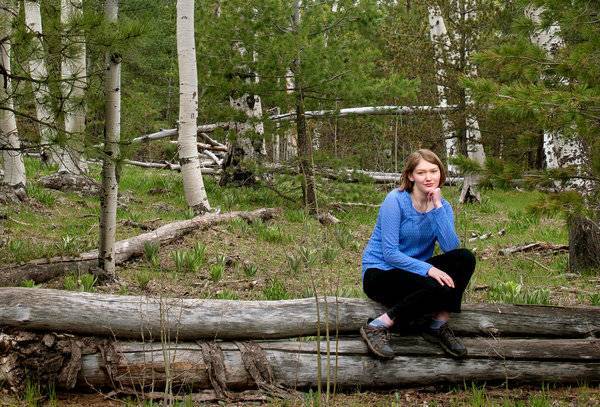
作者:Tillena Trebon
高中:Northland Preparatory Academy
目标院校:The University of Oregon
原文(中英对照)
I live on the edge.
我生活在边缘地带。
I live at the place where trees curl into bushes to escape the wind. My home is the slippery place between the suburbs and stone houses and hogans.
我生活在树木为躲避风的侵蚀而蜷缩成灌木的地方。我的家是郊区之间,错综复杂的石屋和木屋中间的光滑地。
I see the evolution of the telephone poles as I leave the reservation, having traveled with my mom for her work. The telephone poles on the reservation are crooked and tilted with wire clumsily strung between them. As I enter Flagstaff, my home, the poles begin to stand up straight. On one side of me, nature is a hobby. On the other, it is a way of life.
当我离开保留地,陪母亲去上班时,我看到了电线杆的改变。保留地的电线杆歪歪斜斜,电线杂乱地绕在其中。当我回家,进入弗拉格丝塔夫,电线杆变得向上竖起。其中一个我觉得,大自然是一种兴趣爱好。另一个我觉得,它是一种生活方式。
I live between a suburban land of plenty and a rural land of scarcity, where endless skies and pallid grass merge with apartment complexes and outdoor malls.
我生活在郊区的土地富余和农村的土地匮乏之间。这里,一望无际的天空和一成不变的草地,与公寓建筑和露天购物中心融为一体。
I balance on the edge of drought.
我在旱灾的边缘上保持平衡。

In the summers, when the rain doesn’t come, my father’s truck kicks dust into the air. A layer of earthy powder settles over the wildflowers and the grass. The stale ground sparks ferocious wildfires. Smoke soars into the air like a flare from a boat lost at sea. Everyone prays for rain. We fear that each drop of water is the last. We fear an invasion of the desert that stretches around Phoenix. We fear a heat that shrivels the trees, turns them to cactuses.
夏天不下雨的时候,父亲的卡车激起一地的尘土。野花和草地上覆盖了一层灰尘。死气沉沉的大地激起了剧烈的野火。烟雾冲进空气中,就像迷航的船只发出的求救火焰。每个人都渴求雨水的来临。我们害怕每一个雨滴都是最后一滴。我们害怕菲尼克斯周围的沙漠继续入侵。我们害怕热浪使得树木枯萎,将它们变成仙人掌。
I exist at the epicenter of political discourse.Fierce liberalism swells against staunch conservatism in the hallways of my high school and on the streets of the downtown.
我生存在政治叙事的中心。咄咄逼人的自由主义和坚定的保守主义互相对立,这种对立存在于我高中的走廊里,也存在于闹市区的大街上。
When the air is warm, the shops and restaurants open their doors. Professionals in suits mingle with musicians and artists sporting dreadlocks and ripped jeans. Together, they lament the drought, marvel at the brevity of the ski season.
当天气暖和的时候,商店和餐馆纷纷开门营业。身穿套装的专业人士和蓄着脏辫、穿着破烂牛仔裤的音乐家、艺术家相互交谈。他们一起,抱怨旱灾,感慨于滑雪季的匆匆过去。
I live on the edge of an urban and rural existence.
我生活在城市和农村共存的边缘。
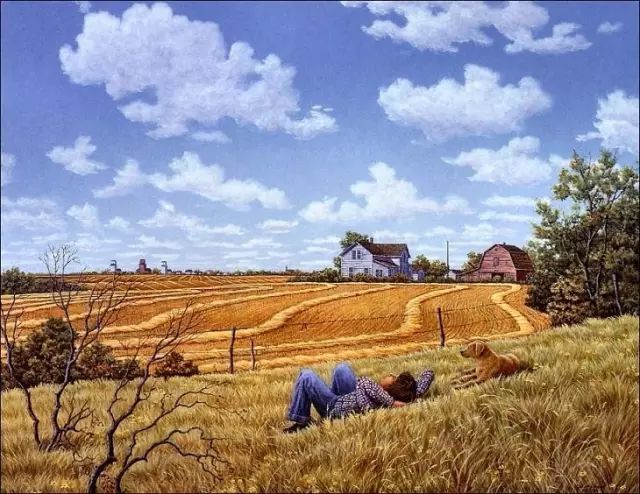
At my mother’s house, we ride bikes down paved streets. We play catch with the neighbor kids. We wage war with water guns.
在我母亲的房子里,我们骑着自行车途径平整的道路。我们和邻居家的小孩玩接球游戏。我们一起用水枪模拟打仗。
At my father’s house, we haul water. We feed the horses and chickens. We chase the fox away from the chicken coop. We watch deer grazing, not ten yards away. We turn the soil in the garden. When the rain and the soil and the sun and the plants give birth to fruit, we eat it straight from the vines.
在我父亲的房子里,我们取水。我们喂马和鸡。我们把狐狸从鸡笼赶走。我们在十码外的地方看着野鹿吃草。我们在花园里松土。当雨水、土壤、阳光和植物一起孕育出果实,我们直接从藤曼上摘下、品尝。
Traditional Navajo weaving and prints of Picasso’s paintings adorn the walls of both homes.
我父母房子的墙上都装饰着传统的纳瓦霍织物和毕加索的画作印刷品。
I straddle the innocence of my youth and the mystery of my adult life. That, too, is a precipice. I know I must leap into adulthood and leave the balancing act of Flagstaff life behind. Still, I belong at the place where opposites merge in a lumpy heap of beautiful contradictions.I crave the experiences only found at the edge. As I dive into adulthood, into college, I hope that I can find a new place that fosters diversity in all its forms, a new edge upon which I can learn to balance.
我跨过了年幼无知,也经历着充满神秘的成人生活。这也是一种困境。我知道我必须赶紧融入成年世界,把幼年平衡弗拉格斯塔夫生活的行为抛到身后。但,我依然属于那个,相反的人和事互相融合出一种美好矛盾感的地方。我渴望只在边缘地才能找到的体验。当我步入成年,上了大学,我希望我能找到一个鼓励各种形态多样性的新地方,一个我能学着平衡的新的边缘。
点评
虽然Tillena的文章依然是关于金钱、阶级或权利的,但是她的文章比之前的文章更具有文学性和哲理。然而,尽管这是一篇非常好的作文,我认为它是这里所有文章中最薄弱的。
这篇文章主要的优势在于作者在整篇文章中穿插的小片段:她描述了她学校的走廊,她在那里讨论过的政治,以及她生活的哲学方面。她还描述了她家中的艺术作品,让图像显而易见。这是一种非常有效的写作技巧:她利用这些情节和图像来加强她关于工作、阶级以及身份的中心论点。
但是,我觉得她的文章是非常脱节的:读者很难从中了解到它的主题,以及作者想传达的关于自己的信息。很明显,作者在对政治、金钱、工作和阶级之间的联系作出评价,但这是为什么呢?这篇更具有文学性的文章并没有有效地告诉读者作者对于自己的表达,这是这篇文章最大的缺陷。
然而,作者的确有很好的英语文学素养,同时她也对阶级和不平等问题有着清晰的认识。
【申请季】系列,每周持续推出,祝福留美学子心想事成!
【留美学子】已发1664期
【留美学子】前期发表
被名校录取的学生 不外乎这两种类型
近期海外名家独一无二的【穿越访谈】系列 其中 4/16
横跨日中美30年: 文化教育二代间的彷徨与发现


